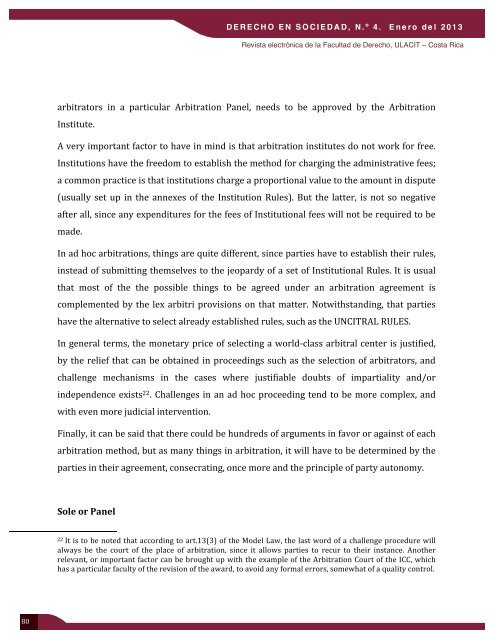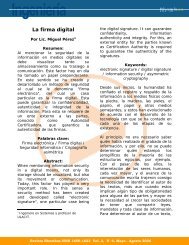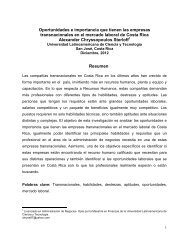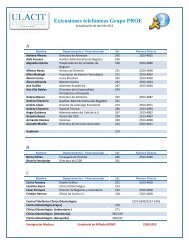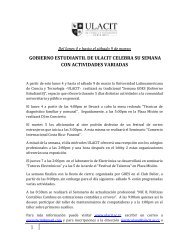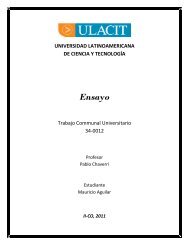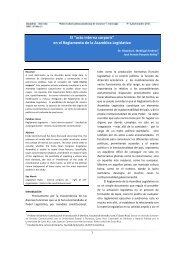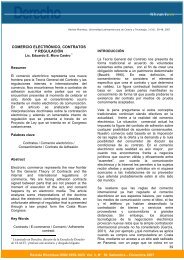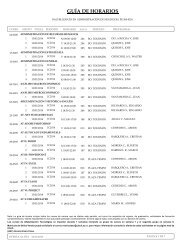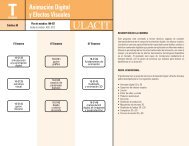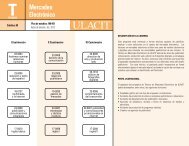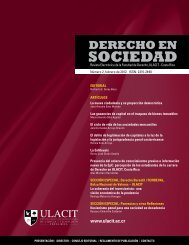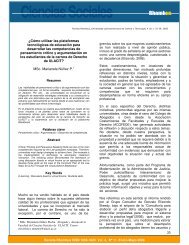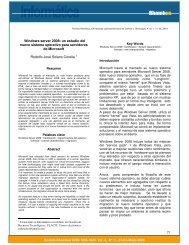IV Edición Revista Derecho en Sociedad - Ulacit
IV Edición Revista Derecho en Sociedad - Ulacit
IV Edición Revista Derecho en Sociedad - Ulacit
You also want an ePaper? Increase the reach of your titles
YUMPU automatically turns print PDFs into web optimized ePapers that Google loves.
DERECHO EN SOCIEDAD, N. º 4 . Enero del 2013<br />
<strong>Revista</strong> electrónica de la Facultad de <strong>Derecho</strong>, ULACIT – Costa Rica<br />
arbitrators in a particular Arbitration Panel, needs to be approved by the Arbitration <br />
Institute. <br />
A very important factor to have in mind is that arbitration institutes do not work for free. <br />
Institutions have the freedom to establish the method for charging the administrative fees; <br />
a common practice is that institutions charge a proportional value to the amount in dispute <br />
(usually set up in the annexes of the Institution Rules). But the latter, is not so negative <br />
after all, since any exp<strong>en</strong>ditures for the fees of Institutional fees will not be required to be <br />
made. <br />
In ad hoc arbitrations, things are quite differ<strong>en</strong>t, since parties have to establish their rules, <br />
instead of submitting themselves to the jeopardy of a set of Institutional Rules. It is usual <br />
that most of the the possible things to be agreed under an arbitration agreem<strong>en</strong>t is <br />
complem<strong>en</strong>ted by the lex arbitri provisions on that matter. Notwithstanding, that parties <br />
have the alternative to select already established rules, such as the UNCITRAL RULES. <br />
In g<strong>en</strong>eral terms, the monetary price of selecting a world-‐class arbitral c<strong>en</strong>ter is justified, <br />
by the relief that can be obtained in proceedings such as the selection of arbitrators, and <br />
chall<strong>en</strong>ge mechanisms in the cases where justifiable doubts of impartiality and/or <br />
indep<strong>en</strong>d<strong>en</strong>ce exists 22 . Chall<strong>en</strong>ges in an ad hoc proceeding t<strong>en</strong>d to be more complex, and <br />
with ev<strong>en</strong> more judicial interv<strong>en</strong>tion. <br />
Finally, it can be said that there could be hundreds of argum<strong>en</strong>ts in favor or against of each <br />
arbitration method, but as many things in arbitration, it will have to be determined by the <br />
parties in their agreem<strong>en</strong>t, consecrating, once more and the principle of party autonomy. <br />
Sole or Panel <br />
22 It is to be noted that according to art.13(3) of the Model Law, the last word of a chall<strong>en</strong>ge procedure will <br />
always be the court of the place of arbitration, since it allows parties to recur to their instance. Another <br />
relevant, or important factor can be brought up with the example of the Arbitration Court of the ICC, which <br />
has a particular faculty of the revision of the award, to avoid any formal errors, somewhat of a quality control. <br />
80


